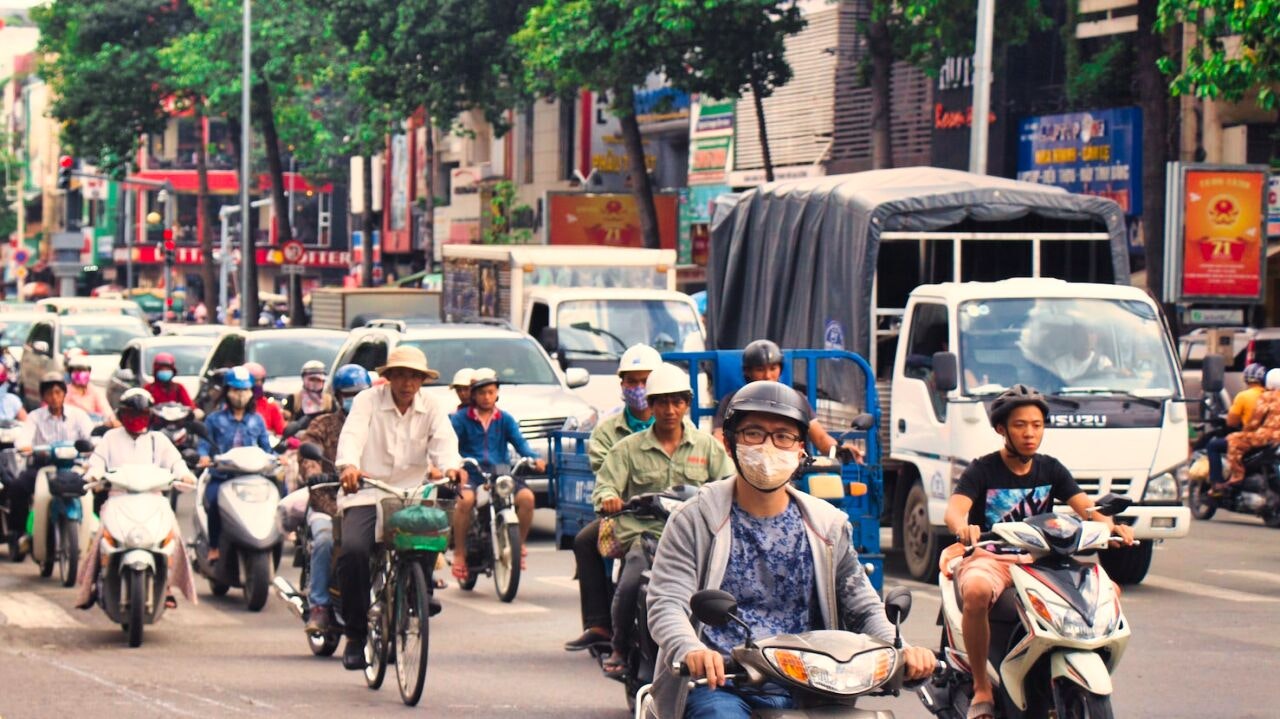
Are you a global company looking to expand your business into Vietnam? If so, you've come to the right place.
With its booming economy and unique culture, Vietnam is an exciting opportunity for many businesses. It is an up-and-coming market with lots of potential for growth.
In this market guide, we'll provide tips on how to successfully grow your company in Vietnam. We'll explain the political and business situation in the market and give tips on how you can maximize your sales.
So let's get started!
Market overview: What you need to know about Vietnam
Vietnam is a country on the eastern edge of the Indochinese Peninsula. The capital city is Hanoi, with other major trade hubs in Ho Chi Minh City, Hai Phong, Can Tho, and Da Nang. Some of the country's top imports include electronics, machinery, plastics, medical devices, and fabrics.
With 97 million citizens, Vietnam has one of the largest populations in Southeast Asia. It is an attractive market for global companies as many people are rapidly moving into the middle class, meaning they suddenly have more disposable income.
In the past, Vietnam has been a largely agricultural society. However, in recent years, the government has maintained a strong drive to transition citizens towards greater wealth and embrace a cashless society. This, along with the country's strategic location, has resulted in a booming economy, making it one of the fastest-growing economies in the region.
With the country's growing economy and favorable business environment, Vietnam is a market with tremendous potential for global businesses.

Digital adoption in Vietnam: GDP and income potential
Digital adoption in Vietnam is on the rise and presents a great opportunity for global businesses to enter the market.
With 86% internet penetration and 80% social media penetration, it's clear that there is a sizable online presence in this market. Since the 2020 Covid-19 pandemic, many Vietnamese people have kept buying through eCommerce channels rather than return to traditional shops.
Vietnam's contribution to the world's eGDP (the percentage of global online income opportunity for companies) is currently 0.23%, with a total population share making up 1.2% of the total global online population.
The potential for growth is immense. Many global companies are already taking advantage by adapting their online content to the Vietnamese market.
What languages are used in Vietnam?
Vietnam is a multilingual country with one official language: Vietnamese. This is also the most common language spoken by over 80% of its population. English is taught in schools but not widely used enough to conduct business.
As a result, if you want your content to succeed in Vietnam, you need to localize into Vietnamese.
As well as Vietnamese, there are also some other languages used in the market, including:
- Tay — A minority language from Northeastern Vietnam, spoken by about 1.7 million people.
- Cham — A historic language of Vietnamese royalty, still spoken near the Cambodian border.
- Khmer — The official language of neighboring Cambodia.
- Muong — Spoken by the Muong ethnic group in Vietnam.
- Other regional languages — Other minority languages are spoken in specific parts of the country, including Nung and Hmong.
It's useful to know these other languages exist. But, if you want to localize your content for the Vietnamese market the key language to cover is Vietnamese. This is the language spoken by the majority of people in the market and provides the most access to potential customers.
5 compelling benefits to doing business in Vietnam
There are many significant benefits to growing your business into the Vietnamese market.
Some of these include:
1. Government commitment to internet access
The government in Vietnam has committed to providing its citizens with access to fixed-line and fiber optic broadband, ensuring everyone has access to a fast, reliable internet connection. There is also an ongoing rollout of 5G networks. This digital infrastructure means that both businesses and citizens can access high-speed internet. This, in turn, improves their ability to access digital content.
2. Open market and young population
Vietnam's dynamic economic and digital growth is boosted by its young population, over half of which are under the age of 30. This provides a great opportunity to target your products and services at this generation, who are also more likely to access digital content. There is also an open market with favorable trade deals with many other global markets.
3. Lucrative demand for consumer goods and services
Vietnam is currently experiencing a high demand for consumer goods and services. This makes it a lucrative opportunity for companies, especially in major metropolitan areas, where people often have disposable incomes up to five times higher than the national average.
4. Strategic location with access to shipping pathways
Vietnam's strategic coastal location provides unparalleled access to primary shipping pathways around the globe. This makes it easy for your business to get your products into the market, as well as allowing you to connect with potential customers in other countries and expand their reach.
5. Substantial foreign investment
Vietnam is very open to foreign investment and has recently seen a substantial influx of investment. Over 31 billion US Dollars were registered in Foreign Direct Investment (FDI) in 2021 alone. This shows a high level of confidence that investors have in the country's economy.
Compliance and regulations in Vietnam that may affect you
As a foreign business operating in Vietnam, you should acquaint yourself with the compliance and regulations of the market to avoid any legal issues.
Vietnam has actively embraced an "open door" policy towards foreigners since 1989. This has helped to foster the creation of both political and economic connections with other nations. Foreigners are allowed to register their company in Vietnam for starting a business.
There are various ways to do business in Vietnam, including setting up a limited liability company, establishing a branch, or setting up a 100% Foreign Capital company. Many of the relevant regulations concern the registration process and paperwork, such as obtaining permits and licenses.
Businesses operating in Vietnam most often report issues for these three topics: dealing with construction permits, getting electricity, and getting credit. But there is support available if you need help to navigate these regulations.

What is the political climate in Vietnam?
The political climate in Vietnam is one of controlled stability. The ruling Communist Party of Vietnam (CPV) has a monopoly on policy decisions and sets forth all major directives for the market.
As shown by the impressive internet rollout, the government is striving to develop Vietnam's economy and has set ambitious goals to make the nation a middle-income country by 2025, upper-income by 2030, and eventually high-income by 2045.
The converse side of the single-party state is that the state limits press freedom, which can hinder the population's access to news broadcasts, online media outlets, and social media.
Relevant to foreign businesses is the fact that the government has also implemented a stringent Cyber Security Law in 2019. This requires foreign service providers to submit information upon demand or delete certain posts within 24 hours of being asked.
If you are looking to do business in Vietnam, stay up-to-date on the country's current political situation and take measures to ensure the protection of yourself, your business, and your customers. Familiarize yourself with Vietnam's laws, regulations and policies - especially those related to foreign businesses.
5 keys to successful sales in Vietnam
What steps can you take to maximize your sales in the Vietnamese market?
Here are 5 keys to successful online sales in Vietnam:
1. Localize into the Vietnamese language
If you want your brand to be accepted in the Vietnamese market, you need to localize your content into the Vietnamese language.
Translating content into Vietnamese allows your company to connect with customers on an emotional level. As English is not widely spoken, you need to speak to people in their own language to make sure your message resonates with them. Otherwise, they will probably choose one of your competitors.
2. Understand the country's diversity
Many global companies have targeted Vietnam only by focusing on the major cities. However, this is no longer enough if you want to succeed.
Location is a heavy influence in Vietnam's markets. The country is divided into three distinct economic centers located around urban hubs. However, the affluent population has been steadily dispersing throughout Vietnam in recent years. Do your research and get to know the market well.
3. Build strong local relationships
Build strong relationships with your company's Vietnamese representatives, agents, and distributors.
Invest in these relationships and nurture them with frequent communication. This will not only help you to fully understand the market, it will also facilitate better localization of your content by allowing these representatives to give feedback on your translations.
4. Enlist your translation provider early
It is important to involve the right translation provider from the outset.
This will help avoid time-consuming and costly errors when localizing your content. Working with a provider that has experience with the Vietnamese market and language will also improve the chances that your marketing messages resonate with customers.
5. Build scalable localization processes
Create localization processes that can scale seamlessly as your presence in Vietnam – and all around the world –grows.
When you ensure that your process for localizing content is efficient and effective, you will save time and resources in the long run. A flexible process will also help you keep up with the changing needs of the Vietnamese market in the future and adjust your strategy accordingly.

What content to translate for maximum benefit in Vietnam
There are many types of content you could localize for the Vietnamese market, depending on your products or services, and industry sector.
Some examples include:
- Ecommerce content — With its booming eCommerce market, Vietnam is the perfect market for localized eCommerce content. Such content can help increase trust in your brand and make customers more likely to purchase from you.
- Technical documentation — Documentation is often highly technical, and so can be difficult to understand for a non-native speaker. Localizing your technical content into Vietnamese will ensure those reading it understand the instructions correctly, resulting in less confusion and improved customer satisfaction.
- Software user interfaces — Localizing software into Vietnamese can significantly improve the user experience of those using your product. It reduces barriers to entry for those who don't speak English, since they can navigate around the interface with ease.
- Videos — Localizing videos helps ensure that you accurately convey your message in the Vietnamese language. This could be marketing videos to help your sales efforts or other types, such as tutorial videos.
- Elearning courses — Elearning in Vietnam has been heavily influenced by the Covid-19 pandemic, which caused many companies and universities to move their training online. With the right eLearning localization process, you can reduce the time and costs associated with creating multiple versions of your eLearning material in different languages.
Where to get further help on moving into Vietnam
Do you want to explore how you could grow your business into the Vietnamese market?
Rubric is the perfect partner for any global company who is looking to expand into Vietnam. Our team of experts has extensive experience localizing content for the Vietnamese market. We can help you make the move into this lucrative market by streamlining your localization processes.
Contact us today to find out more about our services and how we can help you with your transition into Vietnam.